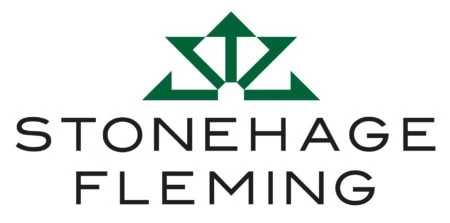One of the Government of Jersey’s key strategic priorities is for the Island to be a leading centre for sustainable finance. As a result, alongside Jersey Finance and the regulator, it is critical to support Jersey trustees in the private wealth arena, as this area grows rapidly on an international scale.
Jersey trustees will also be aware that their understanding of ethical, social and governance (ESG) issues, as well as sustainable finance, will be central to having meaningful and knowledgeable discussions. As the younger beneficial class becomes more involved with their families’ private client wealth and estate planning structures, they hold a stake in driving this forward.
Families themselves and their investments held in wealth and estate planning structures, can be geographically mobile and based in many jurisdictions. This is why Jersey trustees know they need to broaden their scope of understanding as an international finance centre.
The UK Pensions Regulator, an arm of the Department of Work and Pensions, issued a checklist this spring focused not just on climate issues but also on ESG. Here, UK pension trustees with more than 100 members (unless exempt) are required to publish a statement of investment principles (SIP) which includes consideration of financially material ESG and climate factors and an implementation statement which shows how the principles in the SIP have been followed.
On 14th June 2023, The Charity Commission for England and Wales issued a guide for charity trustees titled ‘Charities and investment matters: a guide for trustees’. This builds on a mixed investment strategy in which money is invested not only for profit but also to help a charity’s goals. It follows the ruling based on the specific circumstances in the 2022 English case of Butler-Sloss & Ors v Charity Commissioner EWHC 974 (CH), which raised the issue of whether charitable trustees could use their investment powers to make investments that were also aligned and help with the purposes of the charity. In this case, it was agreed that it could.
In addition to releasing the new Green Finance Strategy in March 2023, the UK government is planning to release the Disclosure Framework and Implementation Guidance for Transition Plans in the summer of this year. As for Sustainable Disclosure Requirements and investment labels discussions, the FCA is expected to release its policy statement later in the third quarter of 2023.
Looking at its next biggest neighbour, Jersey will note that the EU is seeking to approve its sustainable finance taxonomy delegated acts in 2024. It is also looking at new disclosure and reporting requirements, as well as the regulation of ESG rating providers, due to a lack of transparency.
Within another key investment market, this year, the US Securities and Exchange Commission (SEC) is looking to implement rules to standardise approaches including around climate related disclosures for public companies and other disclosure rules.
In an effort to propel Jersey forward, the Jersey Financial Services Commission (JFSC) will release its own consultation on Climate Risk later this year to help the island achieve its strategic goal.
With a watchful eye on the aforementioned international and domestic developments, there are steps that Jersey trustees can do to ensure that they are keeping pace with these changes. The majority of Jersey trustees will already have SIPs in place, which incorporate investment principles of the relevant trust law, investment powers within the trust instrument, the beneficiaries’ circumstances and trust fund requirements to help determine the investment strategy and appropriate benchmark.
Where the trustee has not yet already considered ESG matters, the SIP is a useful tool to build upon, where it can consider the financial risks of investments, that will not be ESG compliant in the future (thinking about such initiatives of the European Green Deal and US Inflation Reduction Act 2022, amongst others already herein discussed). It can also help review investment strategies, allocation, ESG benchmarks and choice of investment managers.
Many trustees also have regular investment reviews with their investment managers. As these upcoming ESG rules are implemented, managers will issue publications and seminars to keep the trust company industry informed. To further encourage the right behaviours including around working conditions for employees and the reduction of carbon emissions, trustees and their investment managers can exercise their right to request additional information on proposed investments by asking relevant questions, casting their vote either independently or via the investment manager and so on.
Jersey trustees should also coordinate closely with their financial accountants in light of the IFRS Sustainability Disclosure Standards, the first version of which was published in June 2023. These standards are being developed by the International Financial Reporting Standards (IFRS) with input from the International Sustainability Standards Board (ISSB). Jersey trustees will need to know not only how this is reflected in the financial reports it receives from the investments it has made but also whether any of the requirements need to be incorporated as part of its own trust structures.
DIGITAL INNOVATION IS DEVELOPING QUICKLY
The Government of Jersey has prioritised capitalising on the possibilities of fintech and digitisation in the fast evolving financial services sector. This year saw the foundation of the first data trust with the assistance of Digital Jersey. To examine the concept and seek new potential opportunities, Digital Jersey met the Jersey Association of Trust Companies (JATCo) and others in the trust industry.
Soon after the launch of the digital Jersey Company Registry, the JFSC developed its guidance around virtual asset service providers. Noting that the wider financial sector is looking at digital identity solutions, they are keen to obtain feedback as to the areas which they can support and provide additional clarity.
Jersey Finance worked closely with JATCo last year developing further understanding around digital assets and custodianship. This year Jersey Finance have launched a series of ‘fintech lunch and learns’ to close the gap between the digital and financial expertise, further boosting digital solutions innovation in the industry.
Client interactions in the private wealth market have transformed, with both virtual meetings and digital signatures becoming the norm and more holistic financial reporting than ever before.
AI innovation in regtech is of particular interest, with the potential of solutions improving productivity and efficiency. One example is the option to select several or numerous essential data criteria that may be readily and securely transmitted with, say, the regulator, revenue authorities and company registrar. It will also be able to identify overall economic market trends and risks. Internal resourcing can then be used more efficiently, shifting from previously manual data collections to a more targeted way of analysing the data, identifying those key risks to the board of trust companies or for compliance monitoring plans, which allow for those risks to be managed appropriately.
A MOMENT IN TIME AND TO THE FUTURE
Private wealth is changing fast. In Jersey’s private wealth industry, the strong relationship with the Government of Jersey, Jersey Finance, Digital Jersey and JFSC will continue to stand us in good stead. Amongst its qualified professionals from various other professional bodies, the Island is celebrating the 30th anniversary of the Jersey branch of the Society of Trust and Estate Practitioners (STEP). This ongoing and demonstrable investment in knowledge and learning will also help Jersey maintain its position as one of the leading international finance centres as it continues to innovate in the future.
Sarah Bartram-Lora Reina, President, Jersey Association of Trust Companies (JATCº). Sarah is a Trustee Director in the Stonehage Fleming Family Office Division in Jersey. She is responsible for managing assets held in trust on behalf of beneficiaries, acting on boards of corporate trustee and corporate director companies in a number of jurisdictions. Sarah is the President of the Jersey Association of Trust Companies since 2021 and Chair of the Jersey Charity Tribunal since 2018.
Sarah joined the Stonehage Fleming Group in 2023. Prior to joining, Sarah has held various senior roles in other Jersey trust companies, being the lead relationship for high net worth individuals based in UK, Europe, Asia and US.
Sarah is a Chartered Associate of the London Institute of Banking and Finance (the Associateship awarded by the Chartered Institute of Bankers in 1999, jointly with a Bachelor of Science degree with honours in Financial Services awarded by the University of Manchester), an affiliate member of the Society of Trust and Estate Practitioners (STEP), holding their Advanced Certificate in UK Tax for International Clients, as well as a member of the Institute of Directors (IOD), having completed their Certificate and Diploma in Company Direction. She has been listed in Citywealth 2019 top 100 International Powerwomen, gold winner of the Citywealth Powerwomen Awards – Professional Services and named as one of Citywealth’s 2023 top 20 Trustees.
Sources:
Gov.je – Policy Framework for Jersey Financial Services Industry www.ec.europa.eu – sustainable finance
www.eyeonesg.com – the future of green finance in the UK: UK Government publishes updated Green Finance Strategy.
www.clarity.ai: sustainable finance regulation in the US: demystifying the SEC’s Key Rule Changes
www.jerseyfsc.org consultations
www.ifrs.org – General Sustainability related disclosures


